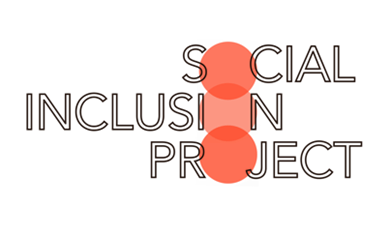
Global-is-Asian will feature a new series of articles drawing on the COVID-19 Policy Response in East Asia policy tracker by the Social Inclusion Project (SIP), Lee Kuan Yew School of Public Policy (LKYSPP), NUS.
SIP is LKYSPP’s research programme dedicated to analysing the role of public policies in creating an open, diverse and inclusive society, where people have opportunities for participation. Its activities aim to influence policy development, promote policy literacy and enable engagement.
Policy communication in a pandemic: Korea’s vaccine passport controversy
Many analyses of the success of East Asian governments at managing COVID-19 point to the public’s adherence to Confucian norms of collectivism and conformism. These cultural explanations overlook the critical importance of evidence-based policymaking, strong enforcement and – perhaps most critical at a time of national emergency – effective policy communication. As the case of public backlash against Korea’s vaccine passport demonstrates, governments in this region are not immune to public resistance against COVID-19 restrictions.
Opposition to the vaccine passport
In December 2021 – just one month after the implementation of Korea’s vaccine passport – 1,023 members of the public filed a collective administrative lawsuit against the policy alleging a
serious violation of basic human rights. Opponents against extending the vaccine passport to 12- to 18-year-olds claimed an infringement of youths’ bodily autonomy and a restriction on students’ right to education. The suit successfully obtained an injunction on 14 January 2022 and the government was forced to suspend the vaccine passport in six (out of the original sixteen) types of facilities.
The very reason for the government’s push to extend the vaccine passports to 12- to 18-year-olds was that this age group suffered a high infection rate, exceeding that of adults between September and October 2021. Within the group of 12- to 18-year-olds, the infection rate during this time was lower among high school seniors (17- to 18-years-olds) – 96.9 per cent of whom were vaccinated in preparation for the college scholastic ability test. This is consistent with scientific evidence that vaccination does not only prevent infection but significantly reduces the risk of severe disease and death.
Although a six-month validity on vaccination was implemented in early January 2022 to promote booster shots, the booster shot rate fell sharply alongside the legal controversy over the vaccine passport. While in December 2021 as many as 800,000 people were receiving the booster per day, only around 300,000 were doing so in January 2022, likely trying to hold out until the policy changed.
Losing the narrative
Politics and the media played a substantial role in building a narrative against the vaccine passport. The media consistently presented the vaccine passport as “witch-hunting” the unvaccinated or “punishing them more heavily than criminals” by restricting their movement. This polarisation of public opinion was timely for politicians, as the campaign for Korea’s presidential election on 9 March 2022 loomed. The candidate for the main opposition, People Power Party, claimed on social media in early January that the vaccine passport would restrict unvaccinated people from shopping for groceries. In fact, the vaccine passport was
only implemented in business premises larger than 3,000m2, which includes hypermarkets but not convenience stores or supermarkets.
A bigger problem was the media’s instigation of doubt against the efficacy of the vaccine, by focusing on breakthrough infections and celebrities who got infected despite being vaccinated, rather than how the vaccine lowers the risks of infection and serious illness.
Fatigue and complacency from a prolonged pandemic may have contributed to vaccine hesitancy over time. During the first and second shot campaigns, even as vaccine side effects were being reported, public polls showed steady improvement in people’s confidence in vaccines. In fact, the media then had criticised the government’s slow introduction of vaccines, calling it a “vaccine famine”.
Lessons in communication
This case offers important lessons for communicating policies and maintaining public trust. First, governments should hold media agencies to a higher standard of reporting on news regarding COVID-19, by proactively requiring corrections for articles that allege vaccine ineffectiveness without evidence, for example. News agencies can also be required to publish accurate official information on COVID-19 regulations.
Second, governments must themselves learn to individualise their messaging and diversify their lines of communication. In addition to official websites and press briefings, they could also disseminate information to diverse online communities with distinct demographics.
Successful communication must operate in conjunction with policies in a range of domains such as social distancing, medical treatment, and economic compensation. Having a proactive and comprehensive care system for people affected by vaccine side effects will help to calm the public’s anxiety and reduce their susceptibility to fear-mongering.